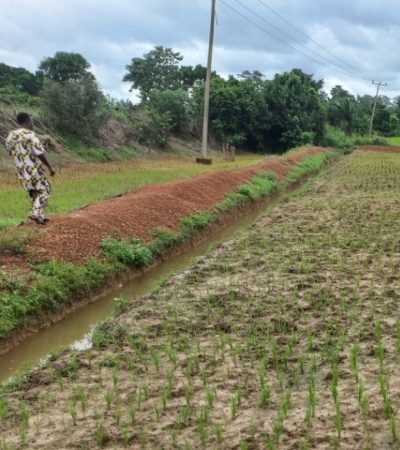In Zambia, Lake Kariba is at the heart of a thriving fishing community, yielding throngs of tiny nutrient-rich fish often caught by women. But in nearby villages, undernutrition among women and children is a sobering reality.
Fish are at the center of an ambitious activity by the Feed the Future Innovation Lab for Fish. Led by Mississippi State University (MSU), researchers teamed up with WorldFish and the University of Zambia (UNZA) to create the FishFirst! Zambia activity, which is working to create dried fish powder-based products and recipes that mothers can easily use to boost nutrition for infants and young children.
“We are solving the problem of malnutrition with what is available locally,” said Dr. Pamela Marinda, a senior lecturer at UNZA and lead researcher with FishFirst! Zambia.

Tiny fish are at the center of an ambitious Feed the Future plan to combat malnutrition in Zambia. FishFirst! Zambia is examining how the improvement of women’s role in the fishing ecosystem can greatly contribute to a well-nourished community. Image credit: Agness Chileya/WorldFish
Netting Nutrition
Although women dominate the fishing trade at Lake Kariba, they often don’t consume their catch. Men and boys frequently get the best food and biggest portions, which can leave women and young children nutritionally vulnerable.

The FishFirst! Zambia activity aims to use tiny fish, a local and readily available source in Lake Kariba, to boost nutrition in women and children. Image credit: Agness Chileya/WorldFish
FishFirst! Zambia set out to identify the root causes of malnutrition in the community. Researchers at MSU, WorldFish, and UNZA studied women’s roles in the fishing economy and looked for creative ideas to boost nutrition, with the aim of enhancing women’s economic well-being and decision-making power within their families and communities.
Their research led them to a hopeful solution, derived from a local dried fish already part of the cultural fabric of Lake Kariba, Zambia and East Africa. The dried fish powder sachet is called ComFA+Fish, and parents can easily sprinkle it over children’s food to help them boost the nutritional quality of their foods. The idea was inspired by Dr. Shakuntala Thilsted, this year’s winner of the prestigious World Food Prize, who also serves as a contributing researcher with FishFirst! Zambia. The aim is that women will not only use ComFA+Fish to elevate nutrition in their families, but also produce and sell it to generate more income. The product is currently under development for the market.
“We’re not just talking about women’s empowerment, we’re talking about empowerment for everyone,” said Dr. Kathleen Ragsdale, a research professor at MSU and lead researcher with FishFirst! Zambia. “Empowering women to be better farmers, better fishers, and better able to sell their products empowers the whole family.”
The first 1,000 days from pregnancy to a child’s second birthday is a critical time for good nutrition, especially for bone and brain development. Ragsdale and her team are currently developing a prototype of the ComFA+Fish sachet. They are working with mothers and their children in Zambia to test how easy it is to use and how it tastes. This sensory panel is the first step towards scaling ComFA+Fish to other East African countries.

Zambian woman drying fish to sell. FishFirst! hopes to train women entrepreneurs and promote women’s empowerment. Image credit: Agness Chileya/WorldFish
Marinda is confident about the fish powder’s future because it’s locally sourced and familiar to families across East Africa. “The potential to scale is enormous,” she said.
Ultimately, FishFirst! Zambia wants to produce and scale a supplement for infants and young children that is not only nutrient-dense, but is locally sourced, affordable, easy-to-use and tasty.
“The world population is only growing bigger and we have many strains on our food systems,” Ragsdale said. “But we know that if we utilize what is out there, then we can nourish the world.”
This story was originally published in conjunction with our October 2021 newsletter focusing on the theme of improving nutrition. The other stories we highlighted include:









